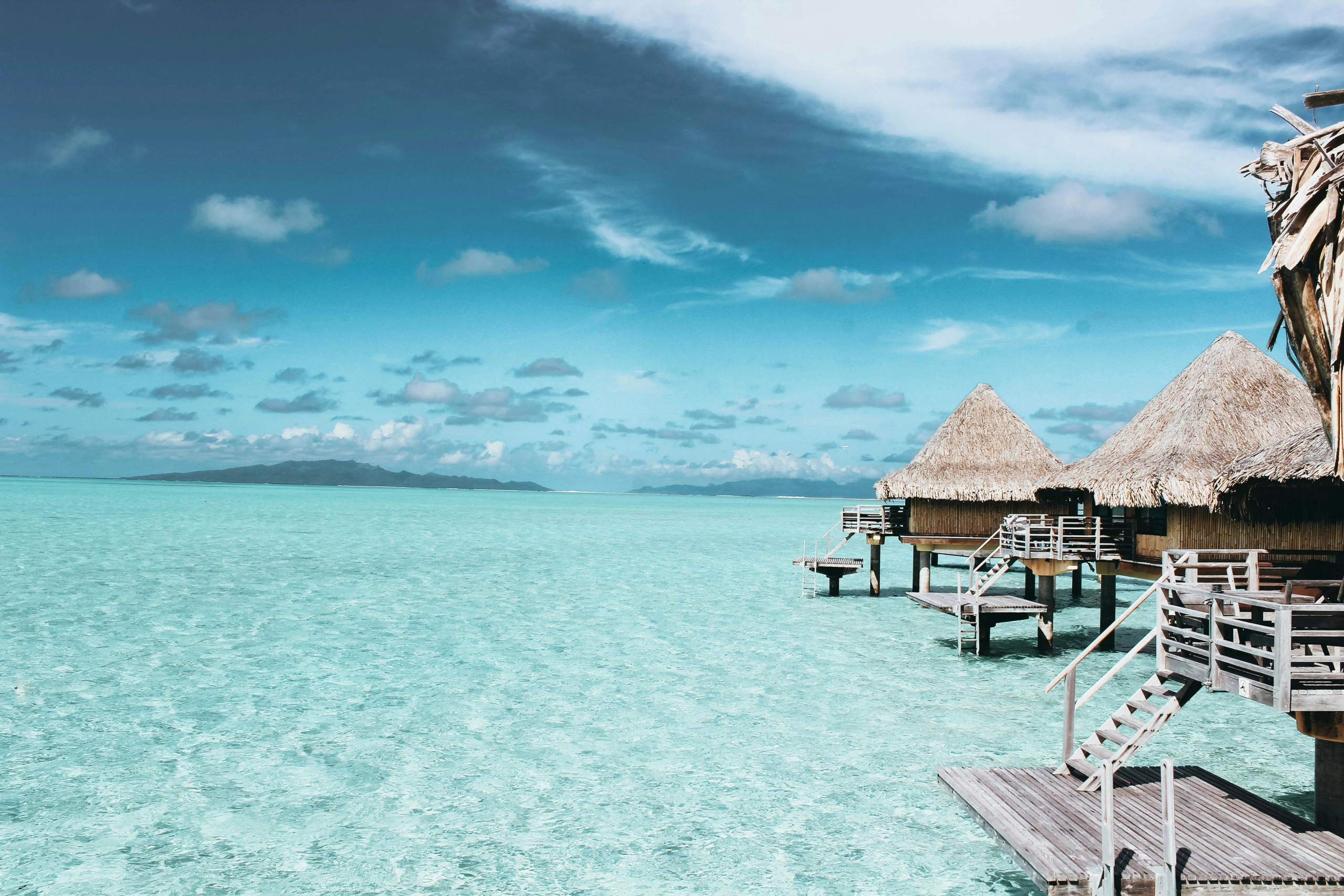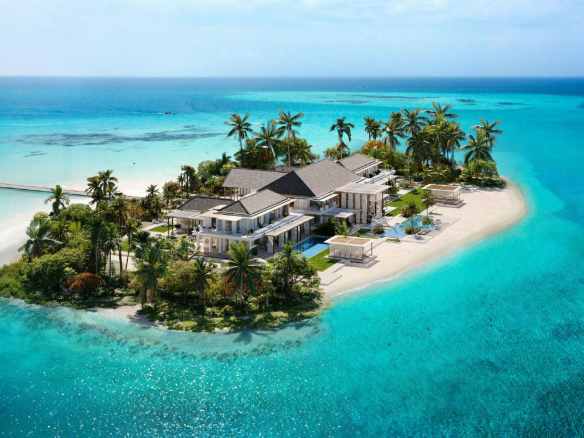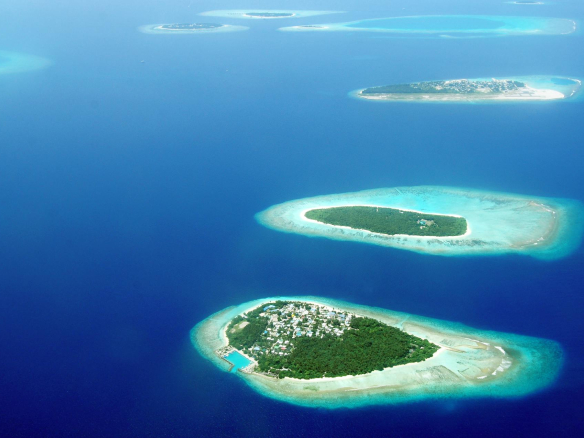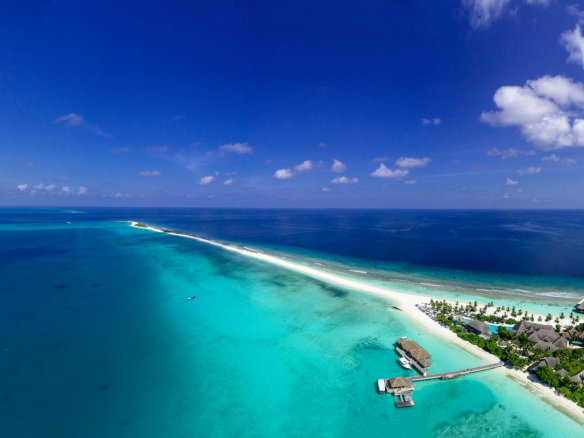Buying a Luxury Hotel in Tahiti: Complete Guide for Investors
Tahiti, the heart of French Polynesia, has long been synonymous with paradise. Its turquoise lagoons, overwater bungalows, lush mountains, and exotic culture have made it a dream destination for high-net-worth travelers. Beyond the postcard beauty, Tahiti offers investors a rare opportunity: the acquisition of luxury hotels and resorts that cater to an international clientele seeking exclusivity and authenticity.
Owning a luxury hotel in Tahiti is more than an investment—it is an entry into the world of high-end hospitality, blending financial returns with prestige, lifestyle, and long-term value. But buying and operating such a property requires careful planning, knowledge of the local market, and an understanding of legal and regulatory frameworks.
This comprehensive guide provides expert insights on how to successfully acquire and operate a luxury hotel in Tahiti.
1. Why Invest in a Luxury Hotel in Tahiti?
1.1. Global appeal of French Polynesia
-
Tahiti and Bora Bora are ranked among the world’s top honeymoon and luxury travel destinations.
-
The islands attract ultra-high-net-worth individuals (UHNWIs), celebrities, and eco-conscious luxury travelers.
-
Rising demand for exclusive, boutique, and sustainable luxury accommodations.
1.2. Strategic location
-
Gateway to French Polynesia (Tahiti International Airport).
-
Increasing direct flights from the U.S., Japan, New Zealand, and Europe.
-
Boost in regional tourism post-COVID recovery.
1.3. Investment stability
-
Land scarcity ensures long-term value preservation.
-
French legal framework provides investor security.
-
Growing eco-tourism and sustainable luxury markets.
2. Tahiti’s Luxury Hospitality Market
2.1. Tourism dynamics
-
Over 250,000 annual visitors (2023 figures trending upward).
-
Average length of stay: 10–14 days.
-
Luxury travelers contribute significantly to revenue per available room (RevPAR).
2.2. Key luxury destinations
-
Tahiti Island: Business hub, gateway to French Polynesia, opportunities for boutique hotels.
-
Bora Bora: “Pearl of the Pacific,” with overwater villas, iconic for honeymooners.
-
Moorea: Close to Tahiti, lush mountains, more affordable luxury segment.
-
Tetiaroa & Private Atolls: Ultra-exclusive opportunities (The Brando model).
2.3. Market trends
-
Increased demand for eco-luxury resorts.
-
Growth of wellness and spa tourism.
-
Rising influence of digital nomads and luxury experiential travel.
3. Types of Luxury Hotels for Sale in Tahiti
-
Beachfront resorts with spa, infinity pools, fine dining.
-
Boutique hotels blending Polynesian culture with modern comfort.
-
Eco-resorts powered by renewable energy, appealing to green investors.
-
Private island resorts with exclusivity for UHNWIs.
-
Mixed-use properties combining hospitality, villas, and events.
4. Legal and Regulatory Framework
4.1. Ownership laws
-
Foreign investors can own property in French Polynesia.
-
Land is often subject to customary rights—legal due diligence is crucial.
-
Leasehold vs freehold: many hotels operate on long-term leases.
4.2. Licensing and permits
-
Hotel classification system overseen by local authorities.
-
Compliance with building codes, fire safety, and environmental regulations.
-
Alcohol, spa, and marina licenses may be required.
4.3. Employment and labor law
-
French labor code applies, with local adaptations.
-
Obligation to hire a portion of local staff.
-
Contracts and union negotiations must be anticipated.
5. Financial Aspects of Buying a Hotel in Tahiti
5.1. Acquisition costs
-
Price range: mid-size boutique hotels from €5M to €15M; luxury resorts €30M to €200M+.
-
Costs vary by location, beachfront access, and brand affiliation.
5.2. Financing options
-
Local and French banks financing possible with strong guarantees.
-
Private equity and hospitality funds increasingly interested.
-
Seller financing may be negotiated in some cases.
5.3. Revenue streams
-
Rooms & suites.
-
Restaurants & bars.
-
Spas & wellness centers.
-
Events (weddings, corporate retreats).
-
Water activities, diving, sailing.
6. Taxation and Incentives
-
French Polynesia has an autonomous tax system (not identical to mainland France).
-
Attractive incentives for tourism investments.
-
VAT reduced rates on tourism services.
-
Possibility of tax credits for eco-friendly investments.
7. Due Diligence Before Acquisition
-
Legal audit of ownership and land rights.
-
Financial audit of past performance (RevPAR, occupancy, EBITDA).
-
Technical audit (buildings, infrastructure, environmental impact).
-
Brand agreements: Is the hotel affiliated with an international chain (Four Seasons, Relais & Châteaux, etc.)?
-
Human resources: contracts, liabilities, local compliance.
8. Negotiation Strategies
-
Evaluate hotel performance vs regional benchmarks.
-
Negotiate inventory (furniture, wine cellar, boats).
-
Consider transitional management agreements with existing owners.
-
Include clauses for rebranding or repositioning.
9. Post-Acquisition Strategy
9.1. Branding and repositioning
-
Align with luxury hotel groups for global reach.
-
Develop a unique identity (eco, wellness, ultra-private).
9.2. Revenue optimization
-
Expand direct bookings through digital marketing.
-
Target luxury niches: honeymooners, yachting tourism, wellness retreats.
9.3. Sustainability initiatives
-
Solar power, desalination plants, waste management.
-
Certification (Green Globe, EarthCheck).
10. Risks and Challenges
-
High operational costs due to geographic isolation.
-
Vulnerability to global tourism fluctuations.
-
Cyclones and climate-related risks.
-
Dependency on airline connectivity.
11. Expert Tips for Success
-
Always partner with a local lawyer and notary.
-
Work with hospitality consultants for valuation and brand strategy.
-
Focus on eco-luxury positioning to match market demand.
-
Plan a long-term investment horizon (10–20 years).
-
Consider partial villa sales for hybrid hospitality models.
Buying a luxury hotel in Tahiti is a once-in-a-lifetime opportunity for investors seeking both financial returns and a lifestyle rooted in paradise. With its unmatched natural beauty, strong luxury brand appeal, and supportive legal framework, Tahiti remains one of the world’s most exclusive hospitality markets. Success depends on due diligence, expert partnerships, and a vision that blends profitability with sustainability.
Follow Clovis Properties on social media: LinkedIn Instagram YouTube Facebook X Twitter







Join The Discussion